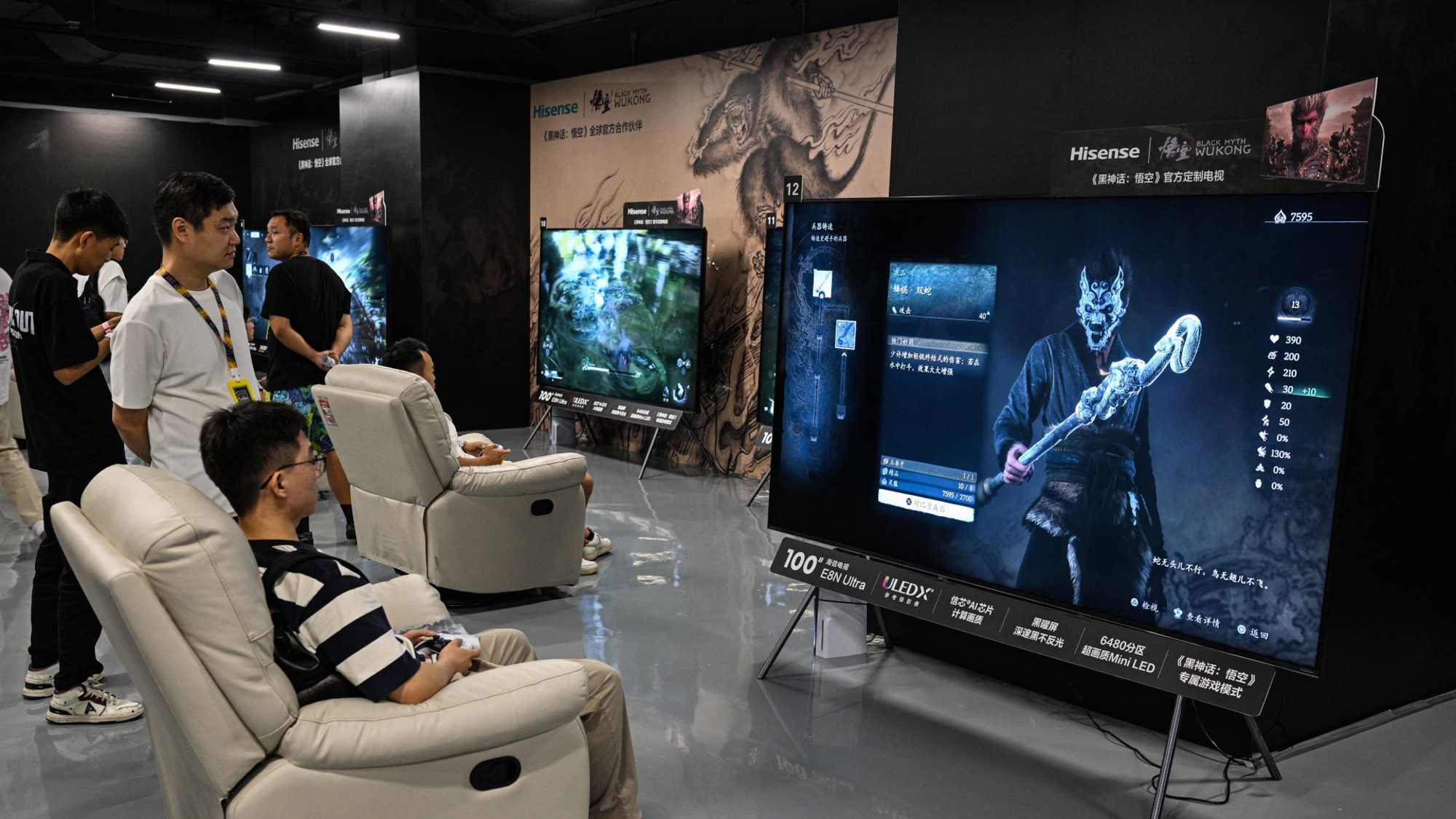A popular new video game is at the center of China's censorship dispute
'Black Myth: Wukong' has more than a million players, but some are criticizing China's oversight of the game


A free daily email with the biggest news stories of the day – and the best features from TheWeek.com
You are now subscribed
Your newsletter sign-up was successful
China has broken new ground with its first true blockbuster video game, "Black Myth: Wukong," but the project has also found itself at the center of a political controversy involving the country's longstanding use of censorship. In a unique twist, though, the censorship does not involve the content of the game itself, but rather the players who have flocked to try it out.
These censorship issues come as the action role-playing game has quickly become a cultural phenomenon in China since its Aug. 20 release. The game, a collaboration between Chinese game developer Game Science and game marketer Hero Games, is considered China's first-ever "AAA" game release — and has the popularity to show it. In the first 24 hours after its release, "Black Myth: Wukong" had more than 2 million concurrent players and became the most-played single-player game ever on PC. Concerns are growing, though, that its marketing partner is regulating what these players are doing while streaming the game.
How is China trying to censor 'Black Myth: Wukong'?
Criticism of Chinese censorship of "Black Myth: Wukong" is "not of the game's source material, design or entertainment value," said Variety. Rather, detractors "have aimed their fire at Game Science and at the kind of censorship of discussion that is commonplace in China, but sits less comfortably in the West."
The Week
Escape your echo chamber. Get the facts behind the news, plus analysis from multiple perspectives.

Sign up for The Week's Free Newsletters
From our morning news briefing to a weekly Good News Newsletter, get the best of The Week delivered directly to your inbox.
From our morning news briefing to a weekly Good News Newsletter, get the best of The Week delivered directly to your inbox.
Many prominent game reviewers who were "given advance access reported they had been instructed not to talk about certain topics while livestreaming the game," said NBC News. Specifically, a document provided to these reviewers by Hero Games "listed one 'Do' ('Enjoy the game!') and a number of 'Don'ts,'" NBC reported. The "Don'ts" listed in the document included "using 'trigger words' such as 'quarantine,' 'isolation' and 'Covid-19,' as well as discussing politics, 'feminist propaganda' and 'other content that instigates negative discourse.'"
By "using the game key and creating content, you acknowledge that you have been informed of the following guidelines, and any statements made are your own and not related to our marketing team," said an email from Hero Games to French gaming YouTuber Benoit Reinier, per NBC. He has "never seen anything that shameful in my 15 years doing this job. This is very clearly a document which explains that we must censor ourselves," Reinier said in a translated YouTube video. A gaming company "sending recommendations through a PR agency to avoid 'negative discourse' is a big red flag to me," Reinier further said to NBC.
How will this affect China politically?
The "global interest in the game also highlighted China's push to exercise its 'soft power,'" said The New York Times. This is true in part because it is based on a novel, "Journey to the West," which is "considered one of China's four great classics. The game also depicts important cultural landmarks throughout China."
However, the specific censorship surrounding Covid comes as "Beijing has sought to rewrite its handling of the pandemic," said the Times. The country's "'zero-Covid' policy helped to contain the virus for almost three years, but it crumbled amid widespread opposition." After the policy was stopped, censors "erased mentions of many of the hardships, such as extended periods of forced isolation for hundreds of millions of people," and the censorship of "Black Myth: Wukong" appears to be a continuation of that.
A free daily email with the biggest news stories of the day – and the best features from TheWeek.com
Despite this, "Chinese gamers have rallied to the game's defense," said AFP. Some are "painting any criticism" of the product, which is largely "focusing on the lack of diversity in the game — as evidence of foreign bias." There are also "signs that the government is recognizing the industry's potential value for exports and culture, notably the interview of Game Science's founder by state media Xinhua agency ahead of its game launch," Goldman Sachs said in a note, per Reuters. The financial services company expects "more Chinese AAA games to enter the global market in the future."
Justin Klawans has worked as a staff writer at The Week since 2022. He began his career covering local news before joining Newsweek as a breaking news reporter, where he wrote about politics, national and global affairs, business, crime, sports, film, television and other news. Justin has also freelanced for outlets including Collider and United Press International.
